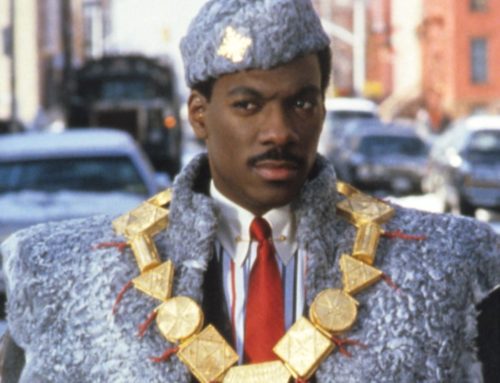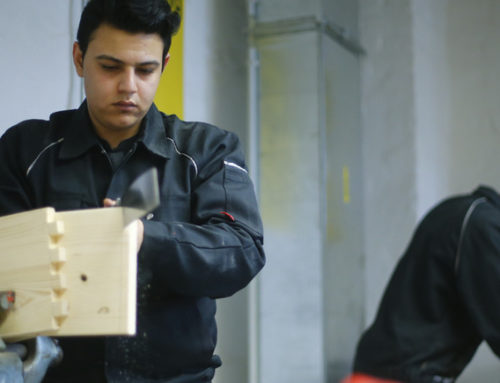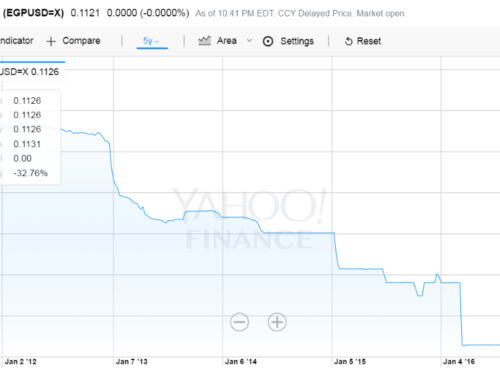On South Sudan’s flag, Egypt’s uniforms, Saudi Arabia’s female athletes, Ramadan, the minute of silence, and Malaysia’s pregnant athlete.
All in one friendly article!

Their budgets may be a tad tighter and their delegations smaller, but developing countries are no less excited about the Olympics than their northern counterparts. There are, in fact, a number of transition countries with Olympic stories that are making big waves in their home nations and around the world. (And the clumsy responses of the International Olympic Committee almost always help to make the waves even bigger.) Here’s a brief roundup of the Nations in Transition Olympic News (let’s call this our NiTON review):
1. The South Sudanese athlete with no flag
The rigid IOC rigid rulebook stipulates that a new country’s application to join the organization must take two years. South Sudan, which has declared independence in July 2011, falls short of this criterion. The IOC, with its usual brilliance, suggested that the South Sudanese athletes compete under the Sudanese flag — not the most sensitive suggestion for the various parties involved, considering that South Sudan recently celebrated the first anniversary of secession from its northern neighbor.
In an unexpected semi-reversal of position, the IOC then declared it would allow South Sudan’s U.S.-based star marathon runner, Guor Marial, to run as an “Independent Olympic Athlete” under the Olympic banner. It was a feeble compromise, but one that nevertheless allowed the young nation a shot at international sports glory.
Independent Olympic Athlete status has regularly been given to players from newly independent nations. In the 2000 Olympics in Sydney, for instance, four Timor-Leste athletes competed under this status. This year, besides Marial, three athletes from the Netherlands Antilles are also “IOA’s,” and their entrance during the Opening Ceremony was, well, memorable.
2. Counterfeit outfits for the Egyptian team
Counterfeit sports gear is ubiquitous in Cairo, but it’s mostly very obvious. Low-quality sportswear bearing brands like “Abibas” and “Niki” is fairly easy to spot.
The gear of the 119-athlete-strong Egyptian delegation was no exception. The counterfeiter, in an excess of zeal, printed Nike insignia on the sports bag — and “Adidas” on the zipper. After one athlete broke the news, it quickly spread around Egypt. The public immediately spotted fertile joke material — but the giggles concealed embarrassment, for it soon turned out that the Egyptian Olympic committee had neither been defrauded nor careless. The Chairman of the Egyptian Olympic Committee (EOC), General Mahmoud Ahmed Ali, had decided to buy counterfeit gear to save money, saying the sub-par gear was “sufficient.” It clearly wasn’t. Here’s what Shaher El-Shafei, marketing director of the sports equipment company and Nike agent ATC, told me: “As the players started coming to exchange sizes, we realized they were clearly knockoffs — and not even reasonable knockoffs, but the really cheap kind.” ATC sent the Egyptian Olympic Committee a letter confirming that the equipment was counterfeit and officially requesting that they withdraw the knockoffs. The EOC ignored the request.
The whole story broke out publicly when one athlete complained on Twitter, saying she had to pay $300 out-of-pocket to buy decent equipment.
The dispute was resolved when ATC, which is managed by Egyptian tennis legend Ismail El-Shafei, announced that it would shoulder all the expenses (an amount around $37,000) and send genuine branded uniforms to the athletes, who were already in London. As of Saturday, most of the gear had already been sent. It wasn’t the end of the story, though. The president of the delegation, another former general, informed the Nike representative who delivered the equipment that he could not accept it until ATC officially wrote a letter stating they would not claim money for the equipment.
“We were clear that we are doing this for free to support the players, to salvage Egypt’s reputation, and to protect our brand,” Shaher El-Shafei told me. “We have no intention of suing anyone, but we insist that an appropriate investigation be launched by the National Council for Sports against the EOC and the supplier. This goes beyond a matter of intellectual property. It affects the reputation of the country.”
By Monday afternoon, he assured me, all athletes will have received their equipment.
3. Saudi Arabian female athletes
Alongside Brunei and Qatar, Saudi Arabia is sending, for the first time, two female athletes to the games, 800-meter runner Sarah Attar and judoka Wojdan Shaherkani. Neither is expected to bring home the gold; both are participating according to a “universality” rule that allows all nations to be represented.
This story has many implications. At home, many Saudis are against the participation of women. A number of idiotic Saudi Twitter users have been using a hashtag referring to the athlete as “Olympic prostitutes.” Then there are the accusations of hypocrisy against Saudi Arabia, which practices wide gender discrimination at home, being the only country in the world preventing girls from practicing sport in government schools. Observers in Saudi Arabia warned cynically about the expected response to the Saudi female participation. The famous blogger Fouad El Farhan tweeted, “I sincerely hope no idiot will see the Saudi women’s participation in the Olympics as proof of openness, advancement, or such other nonsense about the situation and the rights of this half of our society.”
Meanwhile, in a decision taken on Thursday, she was unexpectedly banned from taking part in the competition in hijab. Marius Vizer, the head of the International Judo Federation, made the odd declaration that “The Saudi Arabian athlete will take part in judo and she will fight according to the principle and spirit of judo, so without a hijab.” How a hijab is contrary to the principle and spirit of judo is unclear.
The International Judo Federation further declared that the hijab was a “dangerous for the athlete’s health.” Considering that hijab is allowed in international regional competitions recognized by the IJF, this decision is highly surprising.
In a telephone interview, Mr. Naser Al-Tameemi, General Treasurer of the IJF, declined to comment on the decision, cryptically telling me only that we should “wait to see her in the competition, and then decide whether she was wearing a hijab, a scarf, or a headcover” — hinting at what sounded to me like a possible sartorial compromise.
4. Ramadan exemption for athletes
As the Olympics begin in the second week of Ramadan, it means that most of the competitions will take place during the holy month of fasting, during which observant Muslims abstain from food and water during daylight hours. If you happen to be consuming a high-calorie diet and following an Olympic-class training regimen, this can be a bit of a problem. Luckily, in four participating Muslim countries (Algeria, the UAE, Egypt, and Saudi Arabia), Islamic scholars have already issued rulings that athletes are exempt from fasting, provided they make up for the days missed at a later time. This ruling is based on the fact that Muslims may postpone their fast if they are travelling or are simply unable to fast at any given time.
The issue of athletes fasting during local and international competitions resurfaces virtually every year. When Ramadan occurs during the football (soccer) season, for instance, the issue is often resolved by holding games after sunset.
5. No minute of silence for the 1972 massacre victims
The decision of the IOC to reject a petition requesting all participants in the opening ceremony to observe one minute of silence to honor the memories of the 12 victims of the 1972 Munich kidnapping (11 Israelis and one German) has made more than a few waves, in Israel and beyond.
Media outlets reported that the IOC “may fear provoking a walkout from some Arab countries and are keen to avoid the games being politicized.” Support for the idea of the memorial was infused with inflammatory comments from some commentators taking the opportunity to blame Muslim and Arab countries for the rejection of the request.
The IOC has never provided any evidence that any countries have threatened to walk out over the issue. Their expressed wish to “avoid the games being politicized” appears ridiculously naïve. The games have always been heavily politicized. (Remember that every time you hear the Taiwanese team being referred to as “Chinese Taipei.”) Moreover, anything that has to do with Israel and Palestine, anywhere, is always going to be a political hornets’ nest.
The Palestinian Olympic Committee president Jibril Rajoub sent a statement to IOC President Jacques Rogge saying that it “valued his position.” Sports, Rajoub said, “should serve as a bridge to share love and connections and peace between people, and not to spread division and racism between them.”
Nevertheless, the wording of the Palestinian letter was rather silly. The Palestinian Olympic committee should have just held its tongue and shook the IOC man’s hand in person if they insisted. Instead, Rajoub’s message gave fuel to many Palestine-hating voices that sought to put a negative spin on the story.
Interestingly, the story has gotten far more coverage abroad than it has in Palestinian media.
By rejecting the petition, the IOC may have shielded Palestinian athletes from unfair and inevitable accusations of “guilt by association” during the games — the same one being so often leveled against Palestinians as a whole these days.
The memory of the victims will be honored in a special ceremony to take place at London’s Guildhall. This writer believes, however, that since Olympians were murdered during the official competition back in 1972, they should have been honored during the opening as well.
6. Pregnant Malaysian athlete (and her baby) competing
This is the most inspiring and endearing story coming out of the Olympics so far. Okay, so maybe Malaysia doesn’t really qualify as a transition country. But it’s still worth including.
On Saturday morning, Malaysian Nur Suryani Mohamad Taibi (shown in the photo above, on the right) took part in the air rifle shooting competition. Aside from the usual challenges confronting every Olympic athlete, she also had to worry about whether her baby would stay quiet: Nur is eight months pregnant.
Though she sadly failed to qualify for the final (she felt four kicks during the competition, she said), she remained positive and looks forward to returning to competition after childbirth.
The Olympics is one of those few occasions in the modern world where heroes are forged and inspiration is created. Here’s hoping that Guor Marial, Sarah Attar, Wojdan Shaherkani, Nur Suryani, and many others, will rightfully find their place as heroes and role models for young women and men everywhere, starting at home.



